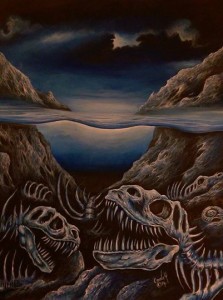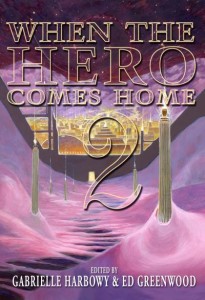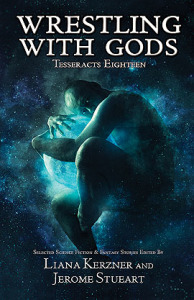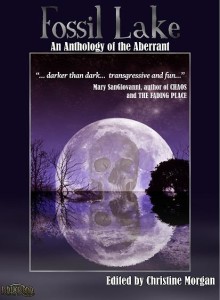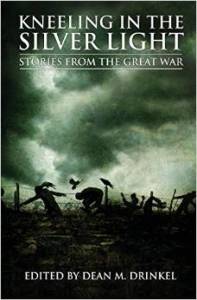There’s nothing to be afraid of. Childhood fears fade as the years pass. They are never as real as they were when you were a child.
Unless they are.
“Beyond the Nightlight” is an anthology for adult readers about the terrors of childhood boogeymen. My contribution, “Big Boy,” is based on the earliest childhood fear I can remember. I wasn’t afraid of monsters under the bed, creatures in my closet or the dark shadows in the corners of my room. I was afraid…of the light.
More specifically, I was afraid of the light cast by trucks going by on the highway outside. Their powerful headlights reflected through my window and created an illuminated square that crawled over my wall and disappeared right above my headboard.
My goal, in writing this scary story, was to show readers, firsthand, what’s so scary about light on a wall. Most people are familiar with common tropes like boogey men and monsters under the bed. And, because those tropes are common, writing a story about them demands a fresh twist or some new insight into the reasons those concepts became tropes in the first place. I decided I’d rather take my uncommon fear and show readers why that moving light kept me awake late into the night, watching it come creeping towards me.
To do that, one of the things I had to do was put myself in the mindset of a three-year-old. I remember arguing with my dad that headlights shone straight ahead on the road, not sideways and up into people’s windows, so how could a truck cause that scary moving square? The square, of course, was caused by the shape of my window, and the light moved as the truck moved on the highway, appearing when the vehicle came into range and disappearing when it passed by. My father tried very patiently to explain this to me, but my child’s logic didn’t think it made sense. Moving patches of light aren’t scary to adults. I had to describe this scene through a child’s eyes.
Next, I asked myself what I remembered the most about this childhood fear. Why do I still remember being scared of the light over three decades later, when I’ve long forgotten why I was ever afraid of other childhood boogeys? (I remember the Sphynx and sprouty potatoes being other terrors of mine). I thought back, and realized that my other fears could be easily escaped: I just closed the book on Ancient Egypt, or put the lid back on the potato barrel. With that light, though, all I could do was lie very still and hope it didn’t notice me. I remember calling for my parents, not knowing if they’d come or not, knowing the light would reappear sooner or later after they left. That feeling of being alone, possibly abandoned, holding very still in the dark and watching the light come crawling my way…that feeling lasted. That was the feeling I wanted to convey to my readers: the feeling of being there with the three-year-old protagonist, small and young and all alone in the dark, wondering if your parent would come…or if the light would get you first.
Thankfully for me (and unfortunately for my main character), “Beyond the Nightlight” falls into the horror component of speculative fiction. That means that I wasn’t bound to write a story that conformed to my reality (which always involved the illuminated square of light vanishing harmlessly once the truck moved out of range). No, in fiction I’m free to describe exactly what three-year-old me was so afraid might happen if I fell asleep with that light on my wall.
Are you scared yet? No? Are you….curious?
You can order your own copy of “Beyond the Nightlight” in paperback or ebook here.
Shine your light on twenty-four terrifying stories for grown-up readers about the horrors that lurk in a child’s imagination.

